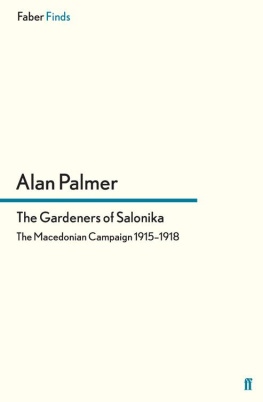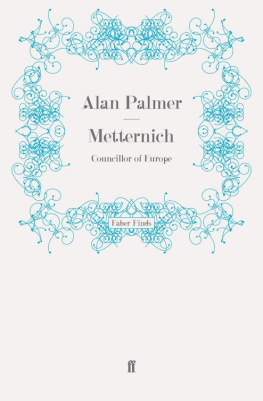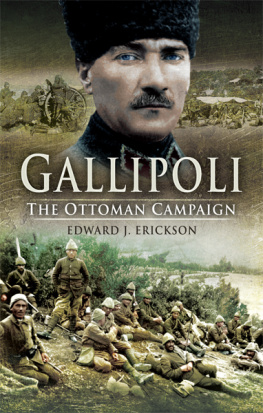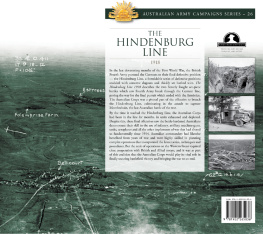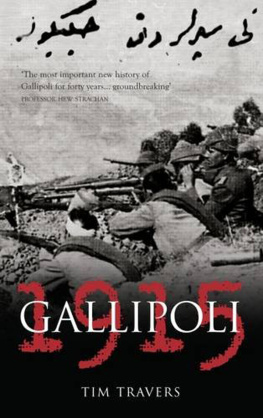Alan Palmer - The Gardeners of Salonika: The Macedonian Campaign, 1915-1918
Here you can read online Alan Palmer - The Gardeners of Salonika: The Macedonian Campaign, 1915-1918 full text of the book (entire story) in english for free. Download pdf and epub, get meaning, cover and reviews about this ebook. year: 2011, publisher: Faber & Faber, genre: Non-fiction. Description of the work, (preface) as well as reviews are available. Best literature library LitArk.com created for fans of good reading and offers a wide selection of genres:
Romance novel
Science fiction
Adventure
Detective
Science
History
Home and family
Prose
Art
Politics
Computer
Non-fiction
Religion
Business
Children
Humor
Choose a favorite category and find really read worthwhile books. Enjoy immersion in the world of imagination, feel the emotions of the characters or learn something new for yourself, make an fascinating discovery.
- Book:The Gardeners of Salonika: The Macedonian Campaign, 1915-1918
- Author:
- Publisher:Faber & Faber
- Genre:
- Year:2011
- Rating:5 / 5
- Favourites:Add to favourites
- Your mark:
- 100
- 1
- 2
- 3
- 4
- 5
The Gardeners of Salonika: The Macedonian Campaign, 1915-1918: summary, description and annotation
We offer to read an annotation, description, summary or preface (depends on what the author of the book "The Gardeners of Salonika: The Macedonian Campaign, 1915-1918" wrote himself). If you haven't found the necessary information about the book — write in the comments, we will try to find it.
The Gardeners of Salonika: The Macedonian Campaign, 1915-1918 — read online for free the complete book (whole text) full work
Below is the text of the book, divided by pages. System saving the place of the last page read, allows you to conveniently read the book "The Gardeners of Salonika: The Macedonian Campaign, 1915-1918" online for free, without having to search again every time where you left off. Put a bookmark, and you can go to the page where you finished reading at any time.
Font size:
Interval:
Bookmark:

To W. L. P.
In writing this book I have profited greatly from the reminiscences of my father, who served in Salonika for nearly three years. Since he first aroused my interest in the campaign in Macedonia it seems right that this book should be dedicated to him.
I am grateful, also, for the assistance and encouragement of my wife, Veronica, who accompanied me on both my journeys to the old Salonika front. Mr G. E. Willis of the Salonika Reunion Association kindly suggested a number of books for me to consult and gave me permission to quote from the excellent quarterly magazine, TheMosquito, of which he is the Honorary Editor. Professor J. B. Hoptner helped me with information about the only United States battalion to serve in the Balkan theatre of war. I thank the staff of the Imperial War Museum (and particularly of the photographic reference department) for their invaluable assistance. This book could not have been written if I had not been able to borrow generously from the London Library. Among written authorities I must express an especial obligation to the two volumes of the Official History of the War, Macedonia, by Professor Cyril Falls, from which I have quoted through the courtesy of Her Majestys Stationery Office. Permission to include copyright material has also kindly been granted by the following: Librairie Flammarion for Franchet dEsprey by General PaulAzan; The Beaverbrook Foundations for WarMemoirs by D. Lloyd George; Messrs Allen and Unwin Ltd for TheSupremeCommand by Lord Hankey; and Le Service Historique de lArme, for volume III of LesArmesFranaisesdanslaGrandeGuerre. The letters from KingGeorgeV by Sir Harold Nicolson are quoted here by gracious permission of Her Majesty The Queen. The bibliographical notes show how great is my debt to the authors of other books and articles.
I should like to thank my publishers for their wise counsel and patience. Naturally, I alone am responsible for the interpretations of character and the assessment of events printed in this book. Perhaps I might add that my admiration for the men who served in Macedonia, which was high when I began my researches, was intensified as I read more and more about the campaign. At a time of revived interest in the Great War I fail to understand why so little attention has been given to their achievement or honour paid to their sacrifice.
A.W.P.
p. 188
p. 198
p. 207
O N O CTOBER 5 TH 1915 two small transports steamed past Cape Paliouri, turned north-eastwards through the narrows off the mouth of the river Vardar, and dropped anchor off the breakwater protecting the Greek port of Salonika. Other transports and the British battleship Albion followed in the course of the morning, slipping in behind the hastily constructed anti-submarine nets to berth in the crowded rectangle of a harbour or send pinnaces to the east quay. The vessels were packed with men in khaki and steel-grey blue the troops of Britain and France were about to experience for the first time the frustration of warfare in the Balkans.
The British and French came to Salonika as neither allies nor enemies of the Greeks. It was a curious situation, without precedent at that time. The major European powers had been at war for over a year. Greece had declared herself neutral but the Greeks were well disposed towards their neighbours and former allies in Serbia, who were the first victims of Austrian aggression. It was this geographical proximity to Serbia that made Greek neutrality precarious. Serbia had no sea-coast; hence, if the Entente Powers (Britain and France) wished to send effective aid to the Serbs they could do so only through the largest port in Greek Macedonia, Salonika. Moreover, the Entente Powers considered that international law entitled them to send a military force to Greece since, when Greece won independence from Turkey in the early nineteenth century, a formal treaty had given Britain, France and Russia the right to land troops, by agreement among themselves, in case of violent upheaval in the Balkans. The British had, indeed, already set up a base in the Aegean at Mudros, on the Greek island of Lemnos, for operations against the Turks at Gallipoli. Now, in concert with the French, they sought to establish themselves on the mainland as well. For by October 1915 the position of the Serbs was becoming desperate. They anticipated an attack in the near future, not only from the Austro-Hungarian armies, but from the Germans and Bulgars as well. Only an inter-allied force could check an offensive of this magnitude; and the route to Serbia was by way of Salonika and the single track railway up the river Vardar. Yet how would the Greeks react to the landing of belligerent troops on their soil? Their prime minister, Venizelos, favoured the Entente and had promised the British and French every facility in Salonika; but it seemed unlikely that the provincial garrison commanders and local governors would continue to support him. I fear the Greeks even though they offer gifts: the sentiment with which Virgil credited Laocoon was expressed with less elegance but equal brevity by the senior officers arriving at Salonika. As the convoy moved up the Gulf, the glinting steel of the Krupp guns at Fort Karaburun looked ominous even if the troops manning the battery were Greek and not German.
Although it was a Tuesday and a working day when the transports sailed in, the waterfront of the Greek city filled with onlookers in the afternoon, for the habit of a siesta persisted, despite the cool wind that was blowing down the Vardar. Moreover , the arrival of the troops was not unexpected. On the previous Friday the destroyer Scourge had brought senior British and French staff officers to the port to make preparations for the allied troops. The town was full of rumours, speculation on the size of the force and its intentions. Some maintained that the newcomers would take over the administration of the city from the Greek authorities; others that they would move off within a few days into the mountains of Serbia. Salonika, which until three years before had been a Turkish garrison town, was accustomed to the presence of the military. Indeed, there were already two Greek divisions encamped on the outskirts, pledged to uphold Greek neutrality. Feelings about the imminent arrival of belligerent forces were divided, that first weekend in October. The civil administration was openly hostile, but the merchants and shopkeepers were uncertain. Occupying troops, with their highhanded requisitioning of buildings and transport, were a burden for some; but for others they were a source of profit. Everyone knew that the purchasing power of the poilu, and even more of the Tommy, was greater than that of the Greek militia. The bazaar-men and the brothel owners awaited the Allies, if not with open arms, then at least with interest. For, like everyone else in Salonika, they considered themselves by now connoisseurs of soldiery.
The observers along the waterfront (who included the German and Austrian and Turkish consuls) were far from impressed by their first sight of Allied military power. The British troops, the headquarters staff of the 29th Brigade and two battalions of Irish infantry some 1,400 men in all were an advance guard of the 10th Division. They were veterans of the Gallipoli campaign and, only nine weeks before, had stormed ashore in pitch blackness below the heights of Suvla, two hundred miles away. The Division reached Salonika under strength and battle-weary. Some men were wearing regulation serge, others were in shorts. A few had greatcoats, others tropical drill uniform. They had come without waggons and lorries, and were to be seen, in the fitful sun of the late afternoon, lugging their tents off eastwards from the harbour, puzzled and perplexed. Brought post haste from the peninsula of Gallipoli to the island base of Mudros they had, at once, been put aboard the ships for Greece. So swift had been the move that little regard had been given to their immediate requirements. The units of the French 156th Division, which had also been serving at Gallipoli, were in better shape, but they too had left their transport in Mudros for later shipment. Gradually, as vessel after vessel disgorged its human cargo amid rumours of political crisis in distant Athens, the whole landing assumed the unmistakable air of an afterthought, and the attitude of the Greeks hardened. It was a dismal beginning.
Font size:
Interval:
Bookmark:
Similar books «The Gardeners of Salonika: The Macedonian Campaign, 1915-1918»
Look at similar books to The Gardeners of Salonika: The Macedonian Campaign, 1915-1918. We have selected literature similar in name and meaning in the hope of providing readers with more options to find new, interesting, not yet read works.
Discussion, reviews of the book The Gardeners of Salonika: The Macedonian Campaign, 1915-1918 and just readers' own opinions. Leave your comments, write what you think about the work, its meaning or the main characters. Specify what exactly you liked and what you didn't like, and why you think so.

